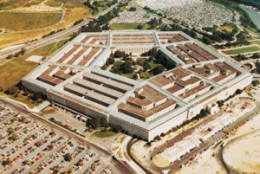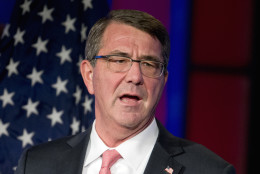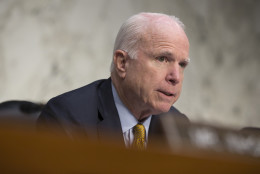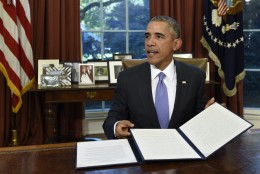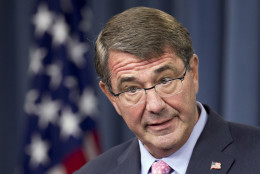John McCain
-
Military undersecretaries have limited time to work as their branches' chief management officers before the next administration takes charge.
December 22, 2015 -
Defense Secretary Ash Carter told the Navy to cut back on capacity and invest more in capability in a letter last week.
December 21, 2015 -
The Senate Armed Services Committee is holding hearings on less prominent Defense officials after a long stalemate over a congressional rule change.
December 10, 2015 -
Based on the work of two study groups, the Pentagon is likely to ask Congress to revise two key statutes underlying its personnel management system for military officers: the Goldwater-Nichols Act and the Defense Officer Personnel Management Act.
December 10, 2015 -
Defense experts urge the Senate Armed Services Committee to consider adding more flexibility to current promotional structures for military and civilian personnel. The Defense Officer Personnel Management Act, which Congress passed in 1980, is too outdated, they said.
December 03, 2015 -
Sen. John McCain sent two letters to White House officials expressing the concerns of a growing bloc of lawmakers over a lack of cyber deterrence policy.
November 20, 2015 -
Nearly 30 years after Congress passed the largest reform in Defense Department’s history via the Goldwater-Nichols Act, the Senate on Tuesday reopened the topic of Pentagon organization in what may turn into another multi-year process of study and legislating over how the world's largest military force is managed.
November 11, 2015 -
The President rejected the fiscal 2016 Defense Authorization bill. The $612 billion legislation included a 1.3 person pay raise, a new retirement system, and overhaul of the acquisition process.
October 22, 2015 -
Testifying before the Senate Armed Services Committee, former Defense Secretary Robert Gates acknowledged the rationale for reforms which centralized big decisions within the DoD acquisition system.
October 22, 2015 -
The annual National Defense Authorization Act (NDAA) Congress sent to President Barack Obama on Tuesday contains nearly 100 separate provisions intended to reform the Defense Department's acquisition system. But that’s just the start, say Capitol Hill’s top two Defense legislators.
October 20, 2015 -
The Cyber National Mission Force Commander says troops are actively participating in operations to protect the United States from cyber attacks.
October 09, 2015 -
Analysts say it is unlikely Congress will rebuff President Obama if he decides to veto the defense authorization bill, which passed the Senate Oct. 7.
October 07, 2015 -
Defense Secretary Ashton Carter said Wednesday that he has advised President Barack Obama to veto the Defense Authorization bill Congress will vote on later this week for several reasons.
October 01, 2015 -
House and Senate negotiators finally shook hands Tuesday on a defense authorization bill both parties generally support and would enact some of the most sweeping and aggressive changes to the military’s personnel and acquisition systems in several decades.
September 30, 2015 Senate Armed Services Committee Chairman John McCain (R-Ariz.) and other members are pushing Defense officials for a definitive policy on cyber attacks.
September 29, 2015

